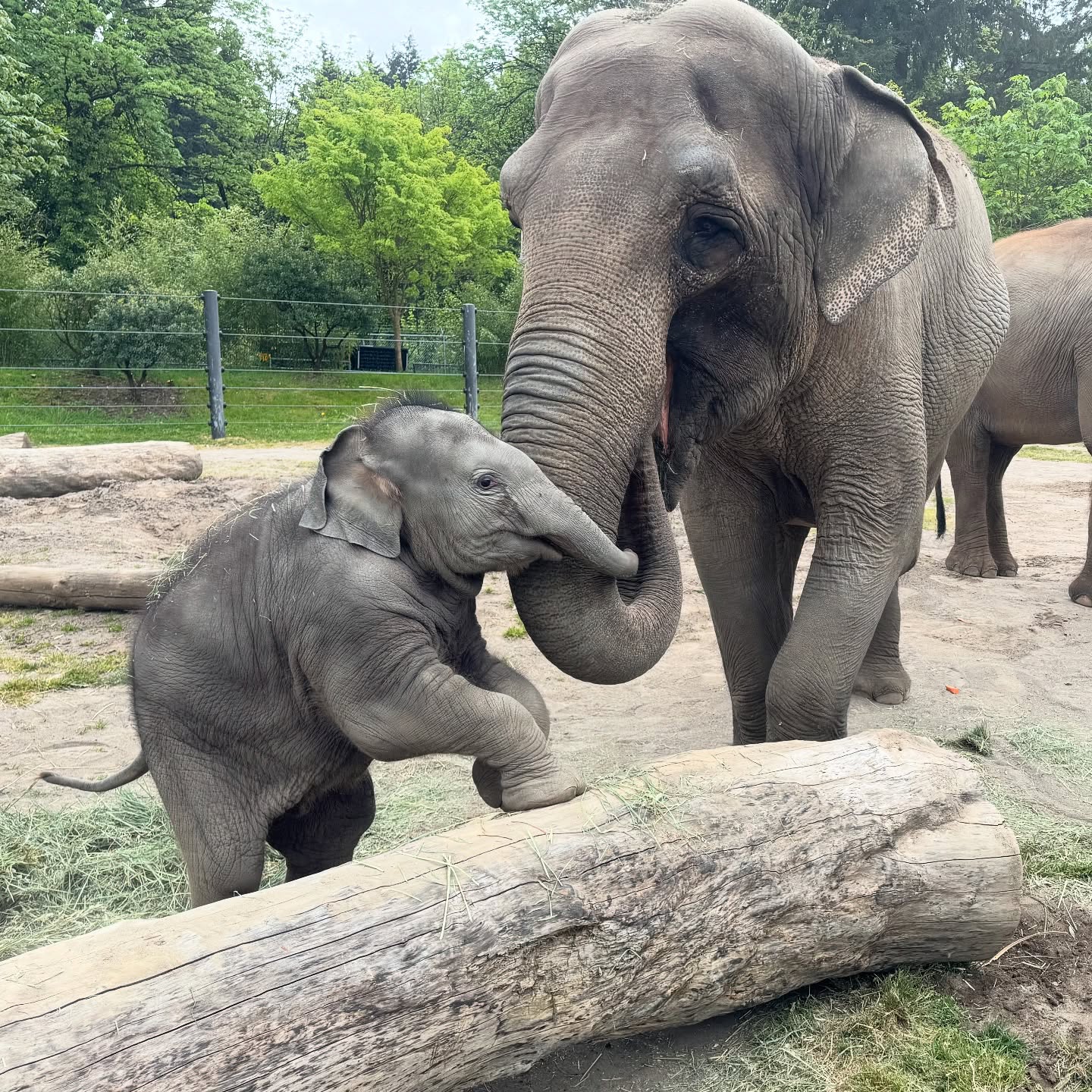- Celebrating Mothers in Nature: Tula-Tu and Rose-Tu’s Story
- Zoological Insights into Elephant Social Structures
- Keeper Tarah’s Role in Animal Welfare and Conservation
- The Importance of Mother’s Day in Wildlife Conservation
- Future Perspectives on Zoo Management and Education
Celebrating Mothers in Nature: Tula-Tu and Rose-Tu’s Story
Mother’s Day isn’t just a time to honor human mothers. It extends to the animal kingdom, celebrating the bond and nurturing traits across species. Tula-Tu and Rose-Tu, two remarkable elephants, highlight the wonders of motherhood at the zoo. These awe-inspiring creatures demonstrate complex social structures and maternal behaviors. Observing them offers profound insights into elephantine familial bonds. Tula-Tu and Rose-Tu represent the importance of protecting these majestic beings, underscoring the need for impactful conservation strategies.
Zoological Insights into Elephant Social Structures
Elephants are highly intelligent animals known for their strong social bonds and intricate group dynamics. At the heart of these relationships are the matriarchs, often the oldest and wisest female elephants who lead herds with care and guidance. Tula-Tu and Rose-Tu exemplify these traits. They have established strong connections within their groups, showcasing the essential role of mother elephants in educating and protecting the young. These dynamics offer crucial lessons in social structures, influencing how zoos manage and facilitate elephant welfare.
Elephants use various communication methods, including vocalizations, body language, and even seismic signals. These interactions aid in maintaining the cohesion of herds and nurturing the young. Observing Tula-Tu and Rose-Tu through Keeper Tarah’s lens, visitors gain an appreciation for these intricate social networks. Their maternal instincts not only serve as a foundation for herd dynamics, but they also inspire conservation efforts focused on preserving the familial units vital for elephant populations.
Keeper Tarah’s Role in Animal Welfare and Conservation
Keeper Tarah plays an integral role in the care and well-being of Tula-Tu and Rose-Tu. Her dedication to understanding their needs goes beyond basic care. With extensive experience in zoology and animal behavior, she bridges the gap between human caretakers and the animals’ natural environments. Her work involves creating enriching experiences that mimic the elephants’ natural habitats, ensuring they remain active and engaged.
Educational outreach is another aspect of Tarah’s responsibility, as she brings the stories of Tula-Tu and Rose-Tu to life for the public. Through guided tours and interactive sessions, she emphasizes the significance of conservation efforts, using the elephants’ narratives to inspire action. Keeper Tarah’s efforts are essential in promoting wildlife conservation education, making the stories of Tula-Tu and Rose-Tu not just tales of motherhood, but of survival and legacy.
The Importance of Mother’s Day in Wildlife Conservation
Mother’s Day is a poignant reminder of the role mothers play across species. In wildlife conservation, this day highlights the need for protecting maternal figures like Tula-Tu and Rose-Tu, who are pivotal to their species’ future. Protecting mother elephants ensures the survival and well-being of future generations. It demands proactive measures such as anti-poaching efforts and habitat preservation.
On this day, zoos worldwide advocate for conservation initiatives, using platforms to educate the public about the threats elephants face. Habitat loss and human-wildlife conflict are among the pressing issues. Celebrations of Mother’s Day become calls to action, urging communities to support conservation projects. Tula-Tu and Rose-Tu become ambassadors for their species, symbolizing the broader struggle for survival.
Future Perspectives on Zoo Management and Education
Looking forward, zoos must continually evolve to enhance wildlife conservation and education. The stories of Tula-Tu and Rose-Tu serve as a guiding light for progressive zoo management strategies. Zoos are increasingly focusing on creating environments that reflect natural habitats, promoting natural behaviors and social interactions within animal groups.
Emerging technologies and research hold promise for improving animal care and welfare. Virtual reality and advanced biometrics could revolutionize how visitors learn about and interact with animals. This enriches educational offerings and strengthens conservation messages. The future of zoos lies in blending traditional care with innovative approaches, ensuring animals like Tula-Tu and Rose-Tu thrive while inspiring future generations.
In celebration of Mother’s Day, Tula-Tu and Rose-Tu remind us of the beauty and complexity of motherhood in the natural world. Their stories enrich our understanding of elephants and deepen our commitment to conservation. As we honor mothers everywhere, these magnificent elephants inspire us to protect the bonds that sustain life across species.
*****
Source Description
Happy Mother’s Day 💕
Tula-Tu and Rose-Tu pics by Keeper Tarah


